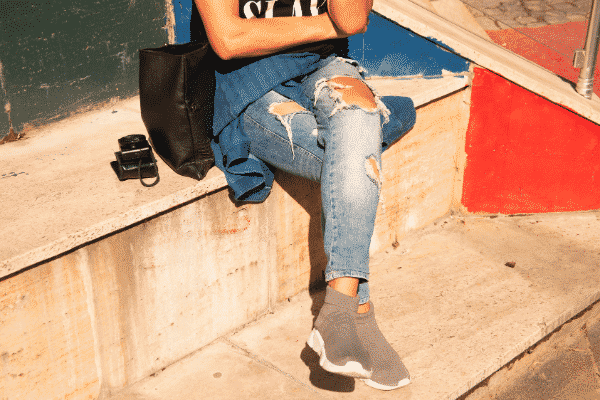Indian politicians have been known to publicly share some bizarre opinions over the years, but women across the country were stumped by the latest iteration last week: that ripped jeans somehow pave the way for ‘societal breakdown’.
Merely weeks into his new office, Uttarakhand Chief Minister Tirath Singh Rawat raised eyebrows with his peculiar stance, suggesting ripped jeans imply loose morals and were a bad influence on the youth.
Within hours the hashtag #RippedJeans was trending on social media, embracing the association of denim with self-expression that has pervaded since the 1950s.
Rawat has since clarified he meant to emphasise respect for Indian culture and traditions over Western traditions, but his comments were enough to rub many people the wrong way. For too long, both men and women in our society have felt the need to pass unsolicited comments on a woman’s body and clothing. The rise of social media has made it even easier to leave a rude comment with no second thought on the consequences.
It’s time for this to stop.
I am a mom and I wear ripped jeans.#rippedjeans #RippedJeansTwitter pic.twitter.com/y62imtEVRx
— Tina BK (@tina_bkaran) March 17, 2021
Starting as early as our school days, girls are taught to dress in a way that doesn’t draw attention or ‘distract’. Many school dress codes draw on these odd principles, going out of their way to cover girls up without applying similar rules for the male population. How many girls can recall being pulled up for their short skirts? Or shirts that might show a hint of unintended cleavage?
In high society fashion, it’s perfectly fine for crop tops to be paired with lehengas. But when matched with jeans, however, they’re an example of ‘Westernised’ women showing off their midriff. In such instances, many Indian families will have leaped in with a rebuke or a jacket in an innocent-enough gesture to protect their girls.
Unfortunately, it all boils down to a culture of policing women’s bodies to avoid temptation, as if men have no self-control to an exposed knee or a stray bra strap. It affects the way we interact with each other and go about our days, and ultimately, the way institutions are structured.
For those who think that this culture exists only in India – we’re seeing its implications in workplaces, and in the government house, here in Australia.
Across the globe, women are tired of being told what to do with their bodies. It seems all advertising is geared to improving us in some way, to make us thinner or thicker, fairer or tanned… anything but what we already are.
READ ALSO: Women of color spend more than $8 billion on bleaching creams every year
Rapes happen not because women wear short clothes but because men like Tirath Singh Rawat propagate mysogyny and fail to do their duty.
Stand in solidarity with the women in #RippedJeansTwitter ! pic.twitter.com/bxVtwcpgWE
— Swati Maliwal (@SwatiJaiHind) March 18, 2021
So while it’s easy to chuckle at the minister’s comments, there’s a larger story to be considered. Swati Maliwal, Chairperson of the Delhi Commission for Women, stirred feathers when she suggested these kinds of comments advocate rape culture – but is she wrong? In the last decade, thousands of women have rallied together for ‘SlutWalks’ around the world to fight the notion that a woman’s appearance or clothing has anything to do with their sexual assault. (In the first ever SlutWalk organised in Melbourne in 2011, no less than 2,500 women participated.)
We all stand to learn something by biting our tongue the next time we’re tempted to comment on a woman’s appearance. My exposed knees and I sure would appreciate it.
Link up with us
Indian Link News website: Save our website as a bookmark
Indian Link E-Newsletter: Subscribe to our weekly e-newsletter
Indian Link Newspaper: Click here to read our e-paper
Indian Link app: Download our app from Apple’s App Store or Google Play and subscribe to the alerts
Facebook: facebook.com/IndianLinkAustralia/
Twitter: @indian_link
Instagram: @indianlink
LinkedIn: linkedin.com/IndianLinkMediaGroup




